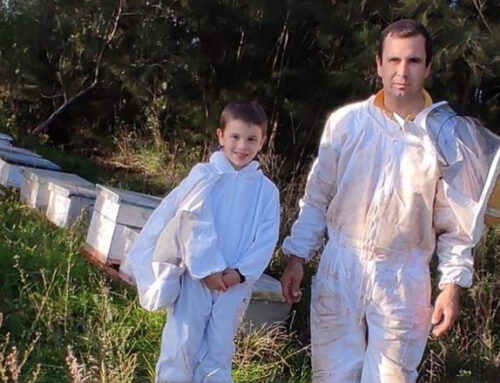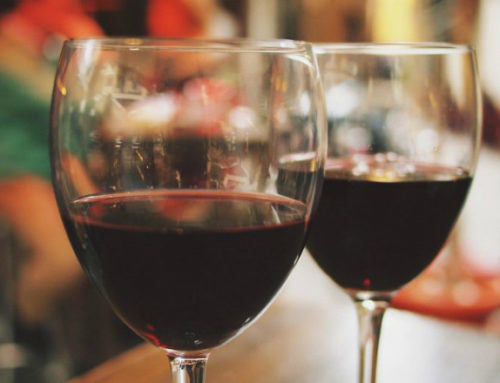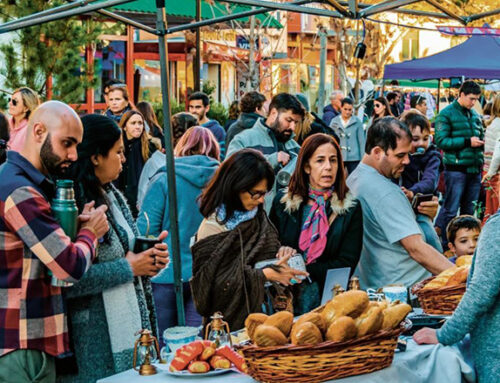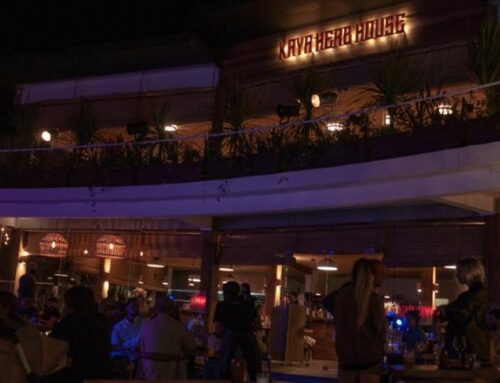Uruguay’s superstar chef Lucia Soria talks pivoting during the pandemic and shares her favorite places to eat.
There is much I forget about 2019—what it felt like to hug friends, or drink at a crowded dive bar—but there is one thing I could never: my first trip to Uruguay. The time I spent in and around Montevideo, the country’s capital, was a blur of fantastic beef, often cooked outside on large iron grills called parrillas, alongside sausage and vegetables.
One meal in particular stood out, though not for its beef (though there was plenty of it to be found). At Lucia Soria’s restaurant, Jacinto—which has just landed on our World’s Best Restaurants list—the eclectic menu of lively, globally-minded dishes represented so much of what I grew to love about Uruguay: its wide-ranging influences, from Italian to gaucho culture. Plates were surprising and light on their feet: shrimp empanadas with ginger and hot chilis, fish with an herby North African chermoula sauce, housemade pastas, and, naturally, tantalizing meat options that nod to Uruguay’s asado tradition.
Soria, who trained under Patagonian chef Francis Mallmann for a decade and has starred as a judge on Masterchef: Uruguay, has been a mainstay of the bourgeoning Montevideo food scene for years. Years ago, Jacinto was featured on an episode of Anthony Bourdain’s Parts Unknown, during which he said of Uruguay, “[This is] no country for vegetarians. Everywhere you look, on parrillas—the prominent cooking method of the region—vast wonderlands of meat and sausages cook slowly over wood coals. Salads are few and far between.”
And yet, Jacinto is welcoming to vegetarians, and wine lovers, and appreciators of fresh-baked bread, and just about everyone. Across the street from Jacinto is Pizzeria Rosa, a newer more casual concept that sells some of the city’s finest pizza, empanadas, and burgers.
The pandemic has complicated everything. But Soria’s two restaurants are still operational, doing takeout and delivery. She says that there are many restaurants she has continued to support over the past few months, like Manzanar and Escaramuza. While Uruguay has been recognized as one of the more successful countries to handle the pandemic, with its daily count of new cases in the single digits for most days since May, Montevideo is still reeling from economic decline, its restaurants deeply hurt by the lack of tourism.
Soria hopes that some Argentinian tourists come this summer, but suspects that Brazilians, the largest demographic of visitors to Uruguay, will not. And she’s not sure if Jacinto, or any of the city’s higher end restaurants, will be able to withstand the loss of business. While people in Montevideo are allowed to dine indoors (it’s winter there, so outdoors isn’t an option), restaurants must operate at 30% capacity—that has made turning a profit impossible, the chef says. Soria closed Jacinto for dinner because it didn’t make economic sense to stay open. The restaurant is open for lunch, and also now sells housemade items (like lemon confit) and favorite products (like the olive oils and wine) as an alternate source of cashflow.
“We try to sell the things that we use and some other things that we like, things that you cannot find on the supermarket,” says Soria. “It’s a new way to think about our jobs and how we do things. It opens another opportunity.” A recent takeaway “Sunday kit” for sale included beet hummus, focaccia, tagliatelle with mushroom cream and pancetta, and inverted pear cake.
The margins are discouraging, but the chef tries to remain positive. Her pizza shop, Pizzeria Rosa, is perfectly primed for take-away and has been doing solid delivery business. She’s begun teaching cooking classes on Zoom to connect with more people around the world, even if they can’t come to Montevideo. But she’s watched many small, independently owned restaurants that closed in March quietly remain closed.
“At Jacinto, it’s a very hard situation for us,” she says. “I don’t know. I hope that we will be able to continue. I don’t think we will be able to continue as we were before, but nothing is going to be like it was before.”
She continues, “I’m hoping for the best. At the same time, I’m thinking how to restart the machine. I’m waiting for the tourists to come. If they don’t, I don’t know. I don’t know if I’m going to close. I have to think about how to continue.”
Everything remains uncertain to Soria except for the industry’s need to change.
“In some places you can charge what you really need to charge, but some other places, no,” she says. And the fact that credit card payments don’t get to the restaurant until 30 days later make it so she doesn’t “even know the reality of our own business. It’s like a bicycle of payments. That is something that Covid made me aware of—that this is not right. We have to change something. We have to rethink how the restaurant can work. It has to change.”
In the meantime, the chef is hoping for the best. When she’s not cooking at home with her young son, here’s where she’s eating.
Jacinto
While temporarily closed for dinner, Soria’s flagship restaurant is open most days for lunch, and is selling an assortment of takeaway meal packages, specialty products, and ingredients.
jacinto.com.uy, +598 2915 2731
Pizzeria Rosa
Soria’s trendy pizzeria, which also sells items like empanadas and burgers, is right across the street from Jacinto in the city’s historic center.
rosa.uy, +598 92 553 421
Manzanar
Soria says this contemporary Montevideo restaurant, located in the elegant Carrasco neighborhood, is one of her favorites.
manzanar.uy, +598 95 121 925
Escaramuza Libros
Another one of Soria’s favorites, this charming bookstore-café hybrid is located in a gorgeous building built in 1903.
escaramuza.com.uy, +598 2401 3475
Mercado del Puerto
The old market, a popular tourist destination, has been closed for most of the pandemic, but El Palenque recently reopened and is one of the city’s most lively places to eat Uruguayan meat specialties.
facebook.com/elpalenquemvd, +598 2917 0190
Written by María Yagoda for Food & Wine Magazine





